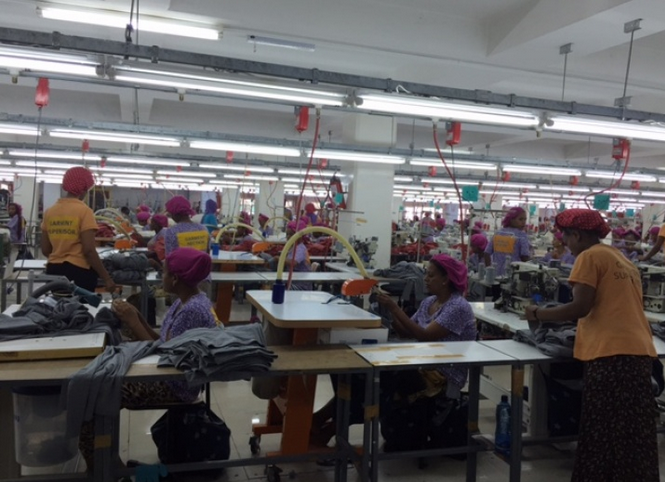6 December, 2017IndustriALL's affiliate, Industrial Federation of Ethiopian Textile, Leather and Garment Workers Trade Unions (IFETLGWU), is on a recruitment drive. Recently it increased its membership by 13,922 workers, of whom 9,802 were women.
The new members came from 27 companies in the Bole Lemi industrial park in the capital, Addis Ababa, Dukem, and Kombolcha in the North East. Ethiopia’s industrial parks, set up by the federal government’s five-year Growth and Transformation Plans to promote industrialization through light manufacturing, are providing unions, including the IFETLGWU, with an opportunity to organise and recruit workers.
Three industrial parks have been opened. According to the Industrial Parks Development Corporation, when fully operational, they will employ 35,000 and 84,000 respectively and one will only cater for the garment and textile industries and its value chain.
There are plans to set up over 12 industrial parks across the country, and to promote the growing of cotton so that factories can get their raw materials locally. A 700 kilometer electric railway line to link to the port of Djibouti is being built to export goods faster.
Global brands buying from Ethiopia include H&M, Tchibo, and Phillips-Van Heusen (PVH). Other buyers are from Bangladesh, China and India. Ethiopia is also a beneficiary of the African Growth and Opportunity Act, giving some Sub Saharan African Countries preferential trade terms when exporting to the US.
While unions welcome the industrial parks and the investments in the garment and textile sector, they are concerned that wages are low and not enough to meet basic needs. The entry level wages averaged around US$40 in Ethiopia, compared to US$68 in Bangladesh and US$500 in China. According to the Ethiopian Investment commission the country has amongst the lowest minimum wages in Africa, and over 50 million potential young workers below the age of 24.
Further, unions want workers’ rights to be protected and for factories to be safe. Employers are also urged not to withhold dues that belonged to unions.
Said Mesfin Adenew, president of IFETLGWU, says:
The federation is working hard to ensure that the country’s constitution, and ILO Conventions 87 and 98 on the right to organise and collective bargaining are respected. We want workers’ rights and benefits to be protected. Otherwise there won’t be industrial peace.
Fabian Nkomo, IndustriALL regional secretary for Sub Saharan Africa, says:
We welcome the Ethiopian government policies promoting industrialization, but it should not be at the workers expense. Industrialization should bring better wages to workers and take their lives out of poverty; this cannot happen when wages are as low as US$40 per month. We are calling for better wages in the garment and textile sector.
The recruitment drive was supported by the Confederation of Ethiopian Trade Unions, FNV Mondiall, ILO, IndustriALL, and Solidaridad.
